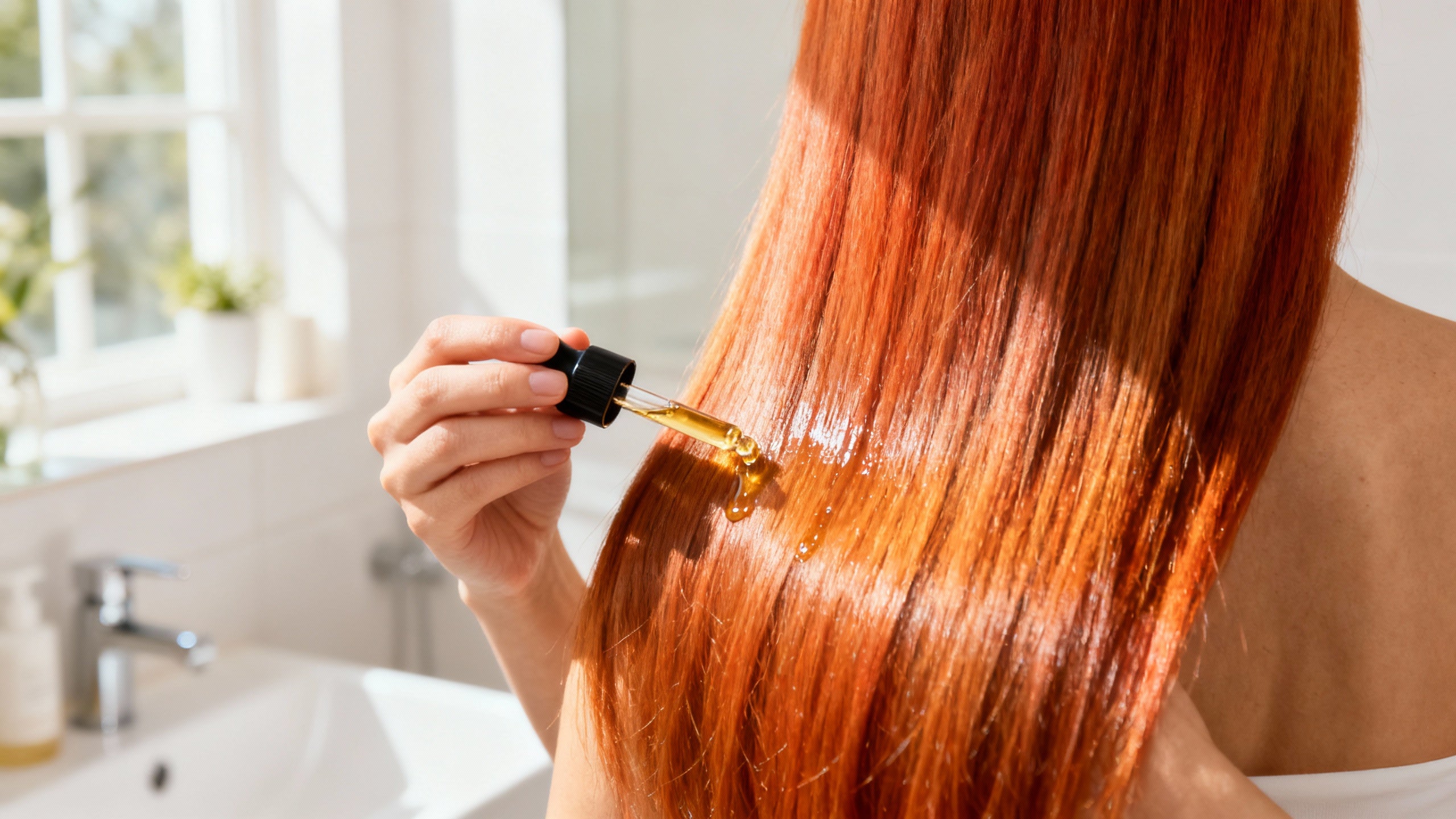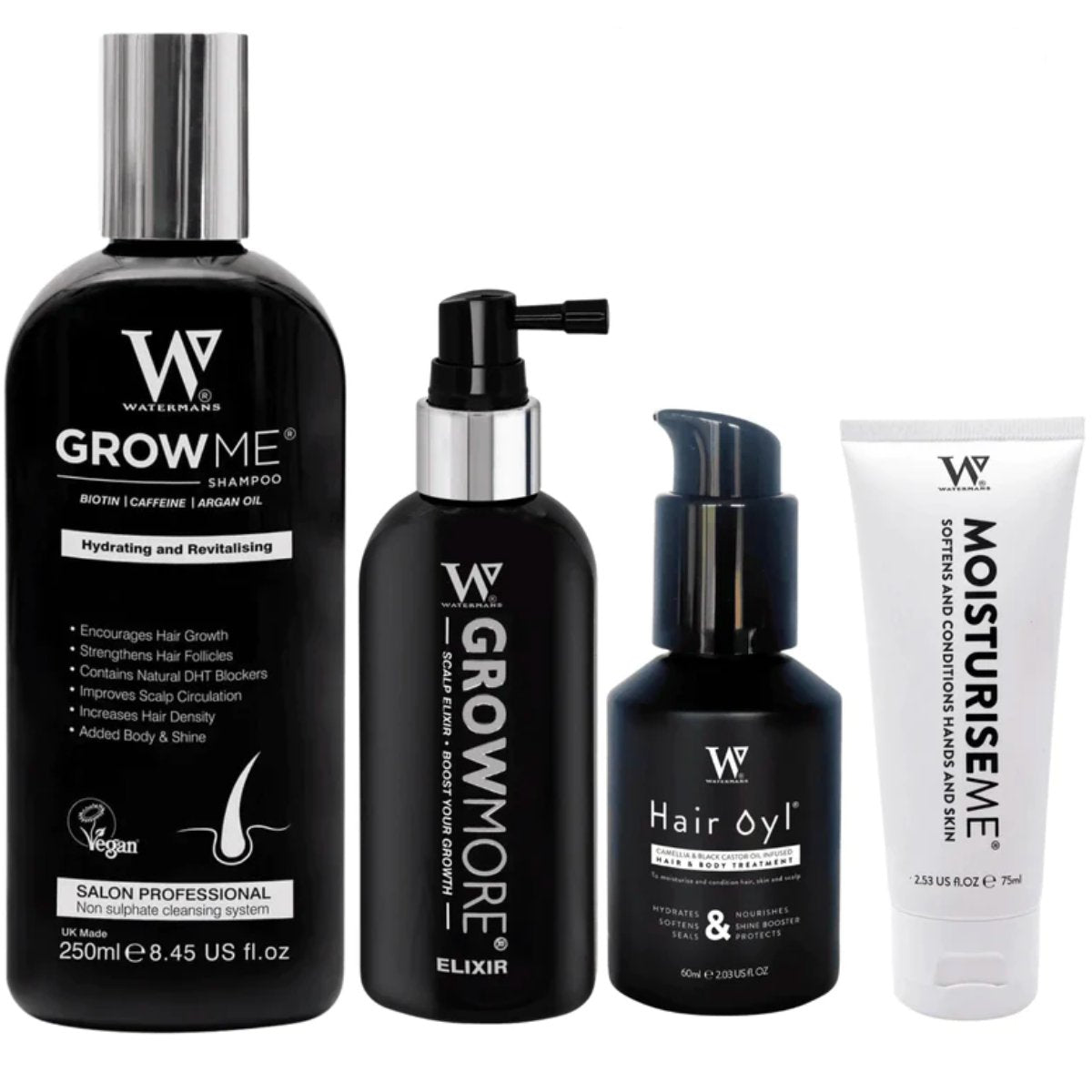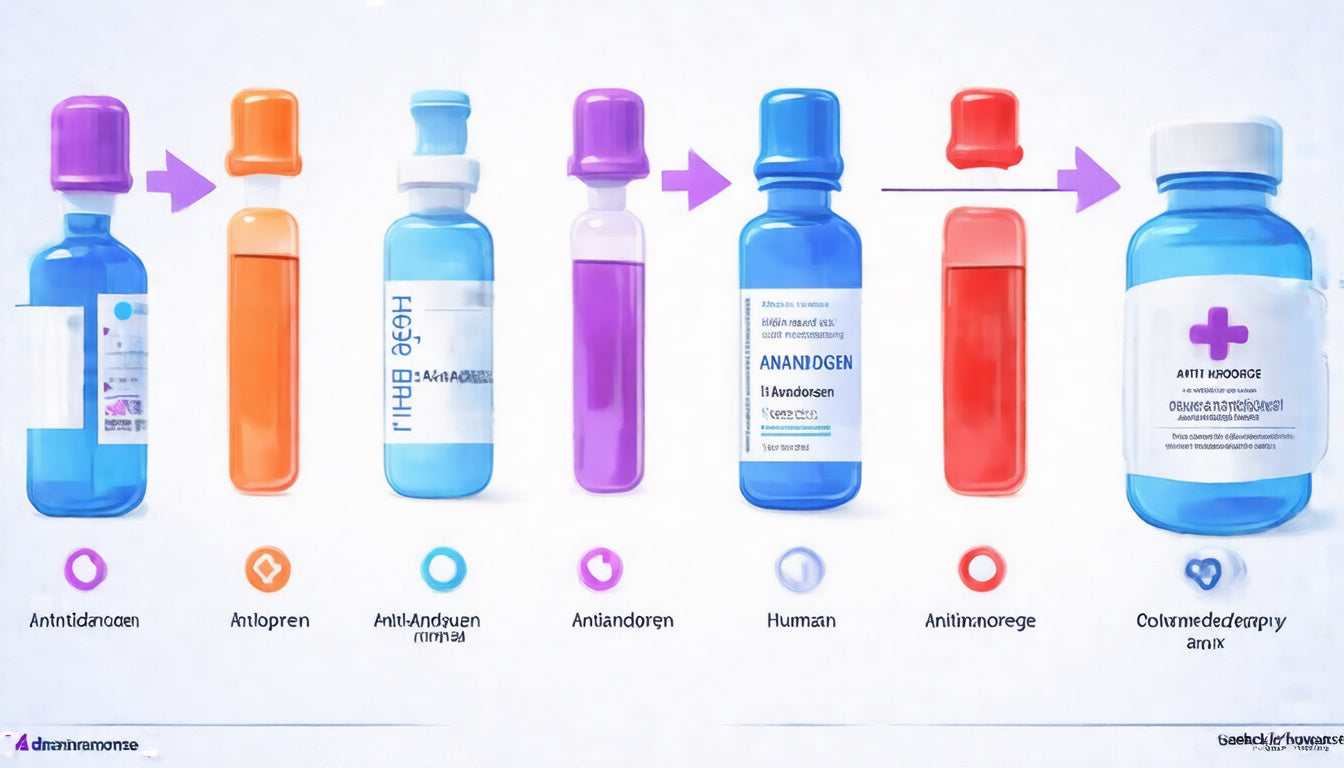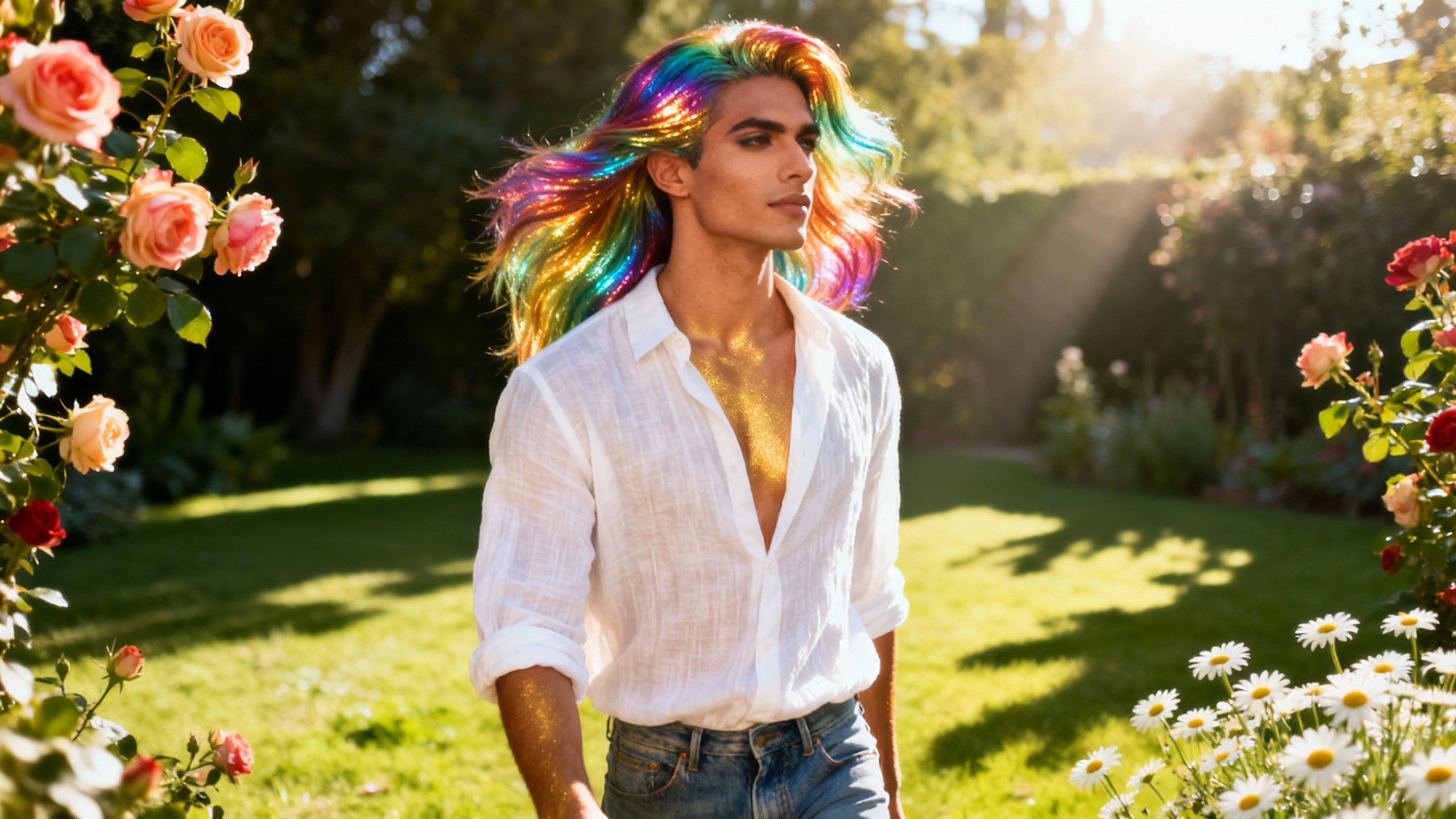
Progesterone Hair Effects: How This Hormone Transforms Your Hair Growth
Understanding the progesterone hair effects matters to anyone curious about hormones and hair.
Progesterone—a key female hormone—acts in the body. It affects reproduction and hair follicles. This article shows how progesterone impacts hair, what changes may occur, and natural steps to keep hair strong.
If you seek a natural, non-medical method to boost hair growth and balance hormones, try Watermans Grow Me Shampoo. The shampoo holds Biotin, Rosemary, Caffeine, Niacinamide, Argan Oil, Allantoin, and Lupin Protein. It wakes your scalp and thickens hair from the roots, fighting hormone-driven thinning.
What is Progesterone and How Does It Affect Hair?
Progesterone is a steroid hormone made mainly in the ovaries after ovulation. It runs the menstrual cycle and supports pregnancy. It also touches skin and hair health.
Progesterone's Role in Hair Growth Cycles
Hair grows step by step. First is anagen (growth), then catagen (transition), and last is telogen (rest). Progesterone links closely with hair follicle activity. When progesterone rises, it:
• Lengthens the anagen phase
• Slows hair follicle shrinkage
• Blocks the path of DHT, a hormone linked with hair loss
The result is thicker hair. Many women see fuller hair when progesterone peaks.
How Fluctuations in Progesterone Lead to Hair Changes
Hair shifts come with progesterone shifts during life stages:
• In pregnancy, high progesterone holds hair in growth mode. Hair becomes thick and full.
• After birth, a quick drop in progesterone pushes many follicles into the resting phase, leading to more hair fall.
• In perimenopause and menopause, low progesterone may thin hair and allow DHT to shrink follicles.
• Birth control and hormone therapy use synthetic progesterone, which can change hair growth in different ways.
These connections help you see how hormones and hair work together.
Common Progesterone Hair Effects – What to Expect
When hormones swing, many note changes in hair look and feel. Here are frequent effects tied to progesterone:
1. Increased Hair Volume and Thickness
High progesterone (as in pregnancy) keeps hair in its growing state while cutting shedding. Hair grows longer and gains shine. This happens as progesterone keeps more follicles active and blocks DHT's action.
2. Hair Shedding After Progesterone Drops
Postpartum hair loss shows when progesterone falls fast after childbirth. Many follicles shift to rest at once, and you see more hair fall. This loss is usually short-lived.
3. Hormonal Hair Thinning with Low Progesterone
In later years, low progesterone may thin the hair. With less blockage of DHT, follicles shrink and hair density drops.
4. Changes in Hair Texture
Progesterone also shapes oil production on the scalp. This can shift hair texture. Some find their hair feels more oily; some, drier.
Combating Negative Progesterone Hair Effects Naturally
Even when hormones change, you can keep your hair healthy with natural acts.
Support Your Scalp and Hair Growth Cycle
• Pick shampoos that work on the scalp and hair follicles.
• Eat well with vitamins and minerals like zinc, iron, vitamin D, and omega 3 fatty acids.
• Limit harsh styling and treatments that stress hair.
Try Watermans Grow Me Shampoo for Better Hair Growth
A good example is Watermans Grow Me Shampoo. This shampoo has these ingredients:
• Biotin, which helps keep hair strong.
• Rosemary and Caffeine that stir up circulation in the scalp.
• Niacinamide that builds up the scalp’s barrier.
• Argan Oil and Allantoin that soothe and keep the scalp soft.
• Lupin Protein that backs keratin production to add hair volume.
This shampoo aims at thinning hair tied to hormone shifts.

The Link Between Progesterone and Male vs Female Hair Patterns
Hair shows hormone ties that differ by gender.
• In women, progesterone blocks some testosterone conversions so follicles stay robust.
• In men, lower progesterone means less of this block, so treatments for hair loss vary.
These links show why each gender may need its own hair care plan.
Lifestyle Factors That Affect Progesterone and Hair
How you live affects both progesterone and hair.
How Stress Influences Progesterone and Hair Health
Stress boosts cortisol, which can cut back progesterone. This harms hair growth. Try activities like meditation, exercise, and good sleep.
Nutrition and Progesterone Production
Eating foods with magnesium, vitamin B6, and zinc helps progesterone formation. This, in turn, aids healthy hair. Cutting down on too much caffeine and alcohol may also help keep hormone levels steady.
Effective Natural Hair Growth Routine to Support Progesterone Benefits
Use a solid hair care routine for the best effects.
- Pick a shampoo such as Watermans Grow Me Shampoo that cares for the scalp and hair roots.
- Choose gentle conditioners with oils and protein.
- Eat foods with hair-helping vitamins (chat with a health expert first).
- Manage stress with daily habits.
- Steer clear of high heat styling and strong chemical treatments.
- Drink enough water to keep your scalp moist.
Frequently Asked Questions About Progesterone Hair Effects
Q1: Can progesterone help reverse hair thinning from hormones?
A: Yes. Progesterone works by keeping hair in its growth phase and reducing each follicle’s risk to DHT. Natural hair care can add to this process.
Q2: Does low progesterone always lead to hair loss?
A: Not always. Low progesterone may lead to thinning, especially when DHT levels rise. Balancing hormones and caring for the scalp can help.
Q3: How soon after progesterone changes will hair effects appear?
A: Changes often take weeks or months. For example, postpartum hair fall shows up 2-4 months after childbirth.
If you face hair loss linked to hormone shifts, try a natural route first. Give Watermans Grow Me Shampoo a shot. Its mix supports your scalp and helps thicken hair.
You can also check out the Watermans Hair Survival Kit for a full care routine.
For more on how hormones affect hair, refer to trusted sources like the American Academy of Dermatology (source: https://www.aad.org/public/diseases/hair-loss/types-of-hair-loss/hair-loss-in-women).
Take hold of your hair health with simple, natural care that works.













